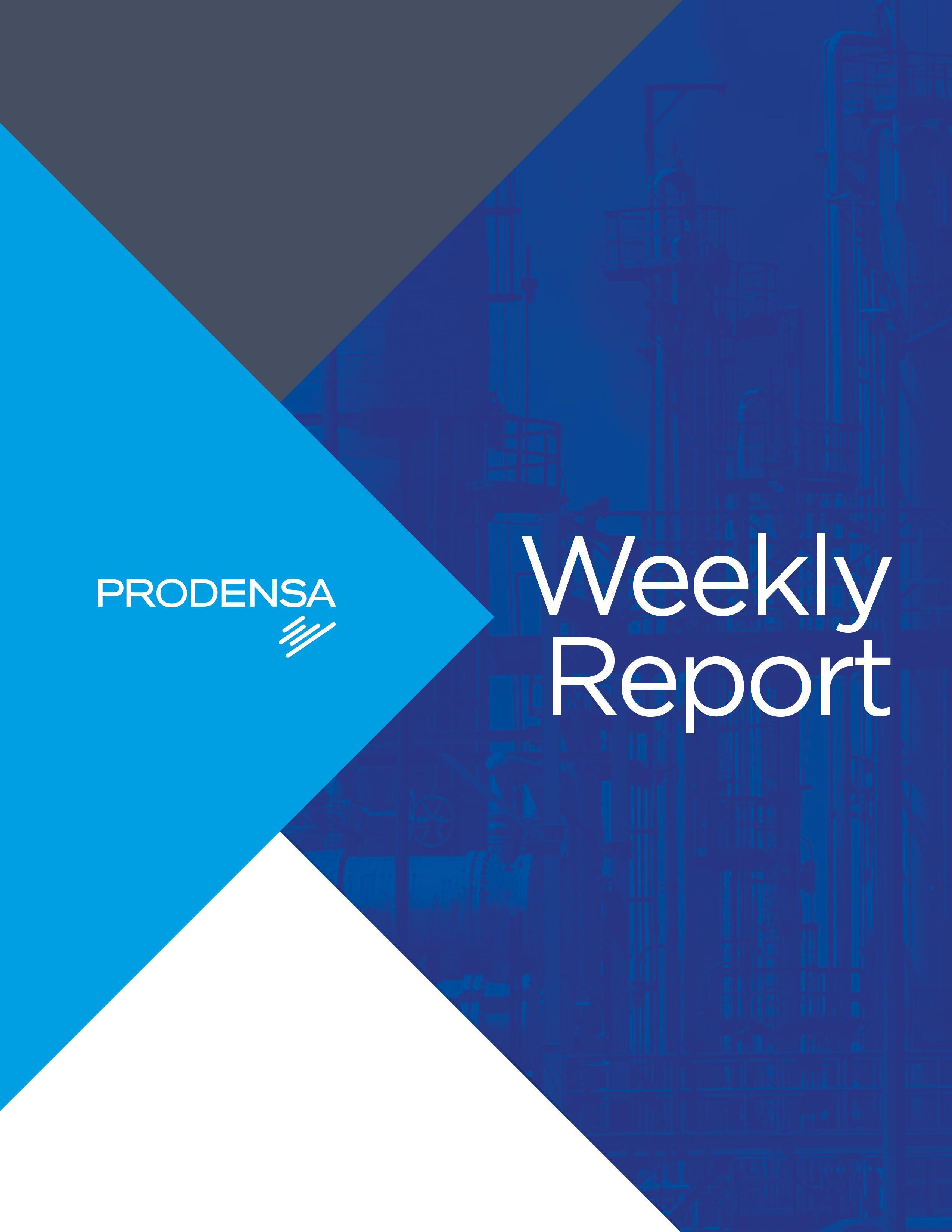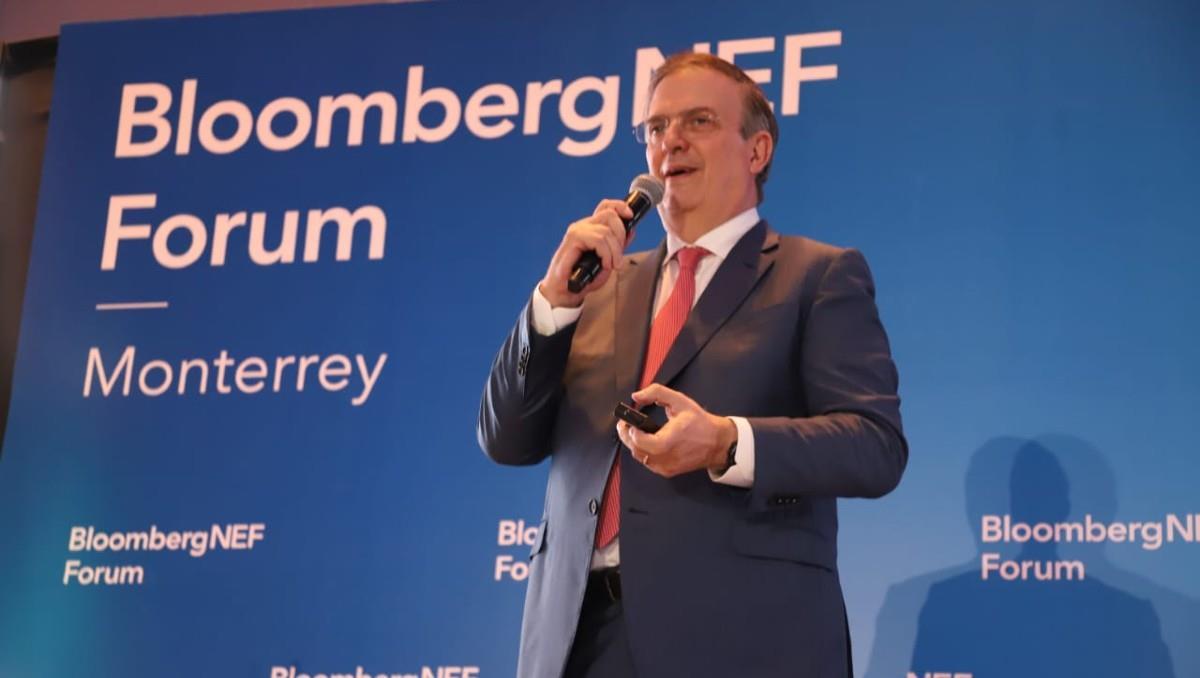
October 5-11, 2024


October 5-11, 2024
On October 8, President Claudia Sheinbaum and Omar García Harfuch, Secretary of Security and Citizen Protection, introduced Mexico's new federal security strategy to combat organized crime and reduce homicides The plan aims to reduce homicides, neutralize criminal networks, and strengthen local police forces, and consists of four pillars:
1. Addressing Root Causes: Focusing on reducing poverty and inequality, especially for vulnerable families, and providing opportunities for young people to avoid crime
2. Strengthening the National Guard: Enhancing the National Guard’s operational capacity to support families, investigators, and intelligence agents while utilizing the Ministry of National Defense’s resources
3. Enhancing Intelligence and Investigation: Creating a Sub-Secretariat for Intelligence and Police Investigation to identify criminal networks and anticipate crimes using advanced technology
4. Full Coordination within the Security Cabinet: Ensuring collaboration between the security cabinet and state authorities, with targeted operations in high-crime states like Guanajuato and Sinaloa
Source: El Financiero and El Universal

President Claudia Sheinbaum announced a MXN 150 billion public investment for 2025 to build 3,000 kilometers of passenger train routes. This follows a constitutional reform that allows the Mexican state to reclaim the right to use railway tracks for passenger transport The reform, originally proposed by former President Andrés Manuel López Obrador, enables the federal government to assign railway operations to public companies or grant concessions to private entities
Sheinbaum emphasized that existing railway concession contracts already allowed the state to use the tracks for passenger transport if private companies did not She confirmed plans to build the AIFA-Pachuca, Mexico-Guadalajara, and Mexico-Nuevo Laredo train routes, with construction involving military engineers and private companies Preference will be given to assembling the trains within Mexico
Source: Animal Político

Mexican Foreign Minister Juan Ramón de la Fuente, recently confirmed by the Senate, described Mexico-U.S. relations as "closer than ever" ahead of the U S elections and the review of the USMCA He emphasized the strong commercial ties and daily interactions at the complex border between the two countries.
The Minister also highlighted ongoing cooperation with the U S on drug trafficking, particularly the global issue of fentanyl, citing a recent U N meeting on the matter
Regarding the USMCA, De la Fuente emphasized that it would undergo a "review," not a renegotiation, and that unrelated topics should not be introduced into the trade agreement President Sheinbaum previously denied pressures related to the review following a judicial reform passed in Mexico.
Furthermore, former President Trump said during his speech at the Detroit Economic Club that he would re-open the negotiations of the USMCA and impose new tariffs to Mexican imports to protect the automotive industry in the US
Source: Expansión
The Mexican Senate approved a secondary law initiative to regulate the election process for judges, part of President Claudia Sheinbaum's broader Judicial Reform The reform, passed with 81 votes in favor and 40 against, aims to democratize the judiciary by establishing popular elections for judges, including the Supreme Court and regional tribunals This initiative will now be discussed in the Chamber of Deputies, where the ruling Morena party has a majority
Source: El Economista
Marcelo Ebrard, Secretary of Economy, outlined key priorities for the current administration under President Claudia Sheinbaum These include reviewing the USMexico-Canada Agreement (USMCA), accelerating nearshoring to relocate businesses to Mexico, encouraging private investment, boosting technological development, and reducing labor informality Ebrard clarified that the USMCA will undergo a review, not a renegotiation, to assess global changes and improve collaboration between the three countries He highlighted favorable conditions for Mexico, stressing the need to fully capitalize on nearshoring opportunities Ebrard also announced plans to organize a portfolio of investment opportunities in 2025 with long-established companies in Mexico
To enhance technological development, the administration aims to increase national production content to 50% while reducing imports Ebrard acknowledged the high cost and complexity of formal employment, stating that the government must address these barriers, as more than half of Mexico’s workforce is informal He also noted plans to digitize informal workers for better access to financial services Lastly, Ebrard announced the upcoming CEO Dialogue, where Sheinbaum will meet with business leaders from the U S and Mexico
Source: Animal Político

President Claudia Sheinbaum has integrated "sustainable development" into the framework of "energy sovereignty," shaping her policies for the oil and electricity sectors The government plan acknowledges the objectives of the López Obrador administration while indicating a shift from a focus on gas and oil towards renewable energy Sheinbaum, a physicist with expertise in energy and environmental studies, aims to "decarbonize the energy matrix as quickly as possible.“ The energy policy is designed to ensure the sector's proper functioning during her administration and to establish a foundation for a genuinely sustainable future She has reduced the oil production target to 1 8 million barrels per day, below López Obrador's target of 2 million, and appointed renewable energy specialists to key positions in Pemex and other sectors
Moreover, yesterday the Chamber of Deputies approved a Constitutional Reform to give production control back to the Mexican State This would grant the CFE and PEMEX sovereignty on energy production and revert the Energy Reform that passed during the administration of Enrique Peña Nieto
Source: Expansión

Chinese electric vehicle manufacturer BYD plans to sell 50,000 units in Mexico this year and aims for 100,000 by 2025 The company's General Director, Jorge Vallejo, announced this during a forum in Monterrey BYD is also seeking an extension of the tariff exemption for electric vehicle imports, as it began sales in Mexico through imports last year
Vallejo stated that BYD will announce the location of its first factory in Mexico by the end of this year, which is expected to produce 150,000 vehicles in two phases The plant will have an annual production capacity of 150,000 vehicles and is projected to be operational within two to three years The factory may assemble models such as the plug-in hybrids Song Plus and King, as well as the electric Dolphin Mini
Source: Expansión

Initiative to Amend Articles 25, 27, and 28 of the Constitution
Presented by: Deputy Manuel de Jesús Baldenebro
Purpose: The initiative focuses on improving family economies by lowering electricity and gas costs, which will reduce food prices through cheaper fertilizer production. It also aims to boost investment and employment, creating 500,000 jobs during the current administration and 2 5 million by 2025 Pemex and CFE will remain 100% public and modernize with more operational freedom. Additionally, the state will reinforce its role as the owner and regulator of oil and gas resources
Status: Published in the Parliamentary Gazette

Upcoming Modifications to the Rules of Foreign Trade
Purpose: The return percentage for sensitive goods under the IMMEX scheme will increase from 60% to 80%, based on the last 12 months, applying to new or renewed certifications Additionally, companies must electronically transmit Annex 24 data within 48 hours and provide SAT remote access within 30 days of the publication of these changes
Various provisions of the Federal Labor Law and the Federal Law of Workers in the Service of the State, as outlined in section b of Article 123 of the Constitution, are reformed and added.
Presented by: President Claudia Sheinbaum
Purpose: Establish in both sections of Article 123 of the Constitution an explicit provision for labor laws to include measures aimed at eradicating the gender wage gap
Status: Submitted as part of a Set of Reforms by President Claudia Sheinbaum; discussion and approval are pending in the Commissions of the Senate
Several articles and sections of the Constitution regarding equality, gender perspective, women's rights to a life free from violence, and the eradication of the wage gap are reformed
Presented by: President Claudia Sheinbaum
Purpose: Guarantee by the Constitution, equal pay between men and women (equal work, equal pay without gender distinction)
Status: Submitted as part of a Set of Reforms by President Claudia Sheinbaum; discussion and approval are pending in the Commissions of the Senate
Constitutional Reform; article 123
Presented by: Chamber of Deputies
Purpose: Establish a work schedule of 5 days of work followed by 2 days of rest, with full pay
Status: Presented to the plenary of the Chamber of Deputies
Constitutional Reform; article 123
Presented by: Chamber of Deputies
Purpose: Pensions and retirement benefits will be calculated based on the minimum wage The Ministry of Finance and the Chamber of Deputies will ensure enough budget resources for these payments A program will be developed to help workers affected by the current calculation method, aiming to retroactively pay the difference within five years
Status: Presented to the plenary of the Chamber of Deputies
Constitutional Reform
Presented by: Chamber of Deputies
Purpose: The proposal stipulates that the annual setting or revision of general or professional minimum wages will never fall below the observed inflation rate during their validity period
Status: Presented to the plenary of the Chamber of Deputies
